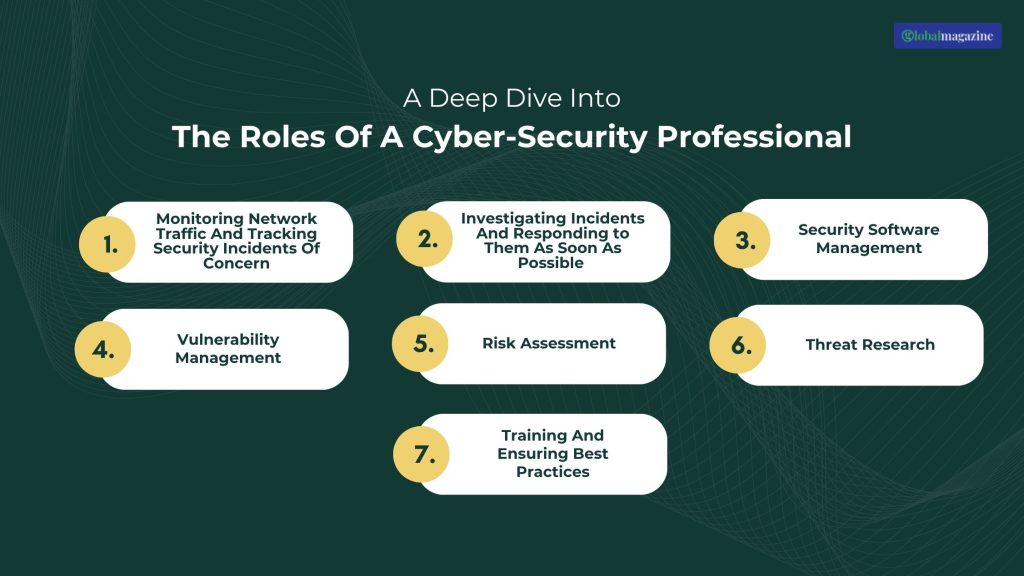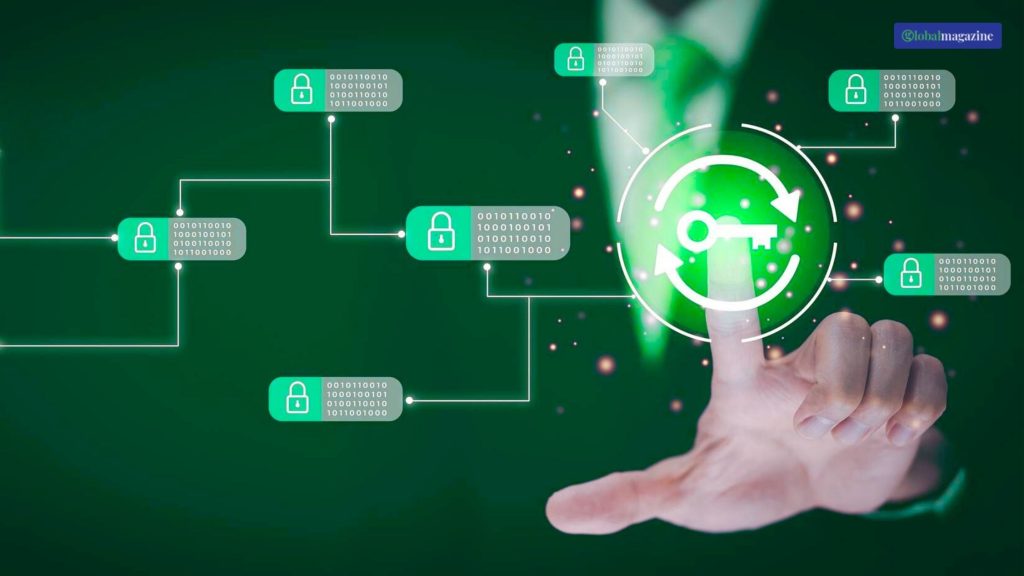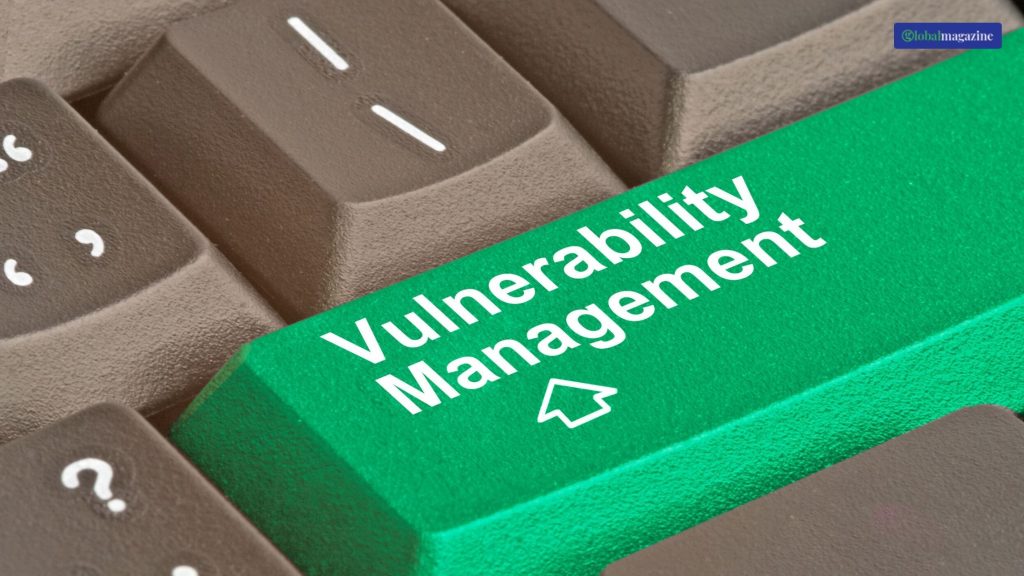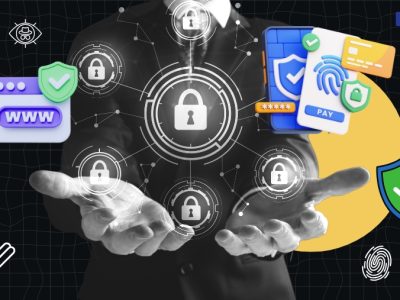Who Is A Cybersecurity Analyst? (With Responsibilities And Career Opportunities)

The job of a cybersecurity analyst starts at a basic level of cybersecurity. A cybersecurity analyst is expected to have several different skills.
Cybersecurity analysts are responsible for the protection of the networks of an organization. The analysts protect the hardware, software, and data of any organization from internal and external threats.
Cybersecurity analysts protect the assets of their organizations from diverse cyber threats, such as theft, loss, or unauthorized access.
Cybersecurity analysts are supposed to have a deep understanding of the IT infrastructure of the organization that they are serving. The analysts are the sense organs and perhaps also the backbone of the Cybersecurity Department of an organization.
Cybersecurity Analysts should have firm knowledge of working with various operating systems which including Windows, Mac,and Linux.
These professionals must be experienced to handle VPN and Proxies as well as Security and Information Event Management Systems.
A Deep Dive Into The Roles Of A Cyber-Security Professional.

The work of cybersecurity professionals includes a plethora of things, and managing all of it is important for these professionals to serve their purpose.
The cybersecurity analysts must have a deep understanding of the contemporary cybersecurity landscape to perform the following tasks efficiently.
Cybersecurity professionals maintain the integrity of the systems, networks ,and data of an organization. Cybersecurity analysts protect the systems, networks, and data of an organization against hacking, malware, and unauthorized access.
Cybersecurity professionals have to do the following tasks to maintain the integrity of the systems of an organization.
1. Monitoring Network Traffic And Tracking Security Incidents Of Concern
The cybersecurity analysts monitor the networks continually for any potential breaches and instructions.
Advanced tools such as Intrusion Detection System (IDS) and Security Information and Event Management (SIEM) help to detect abnormal behavior.
The cybersecurity analysts should have firm knowledge of IDS and SIEM.
The analysts should be able to detect these threats with the help of these advanced tools; as a result, anomalies that deviate from the normal course of events indicate cyber threats..
Cybersecurity analysts should be vigilant of all the surrounding cybersecurity occurrences.
2. Investigating Incidents And Responding to Them As Soon As Possible

The cybersecurity analysts detect the anomalies to detect the threats. HeThe analysts investigate and mitigate the impact of the incident.
Professional cybersecurity analysts further investigate the cause of the threat, eliminate it, and at the same time. Cybersecurity analysts contain the existing threats to prevent any further damage.
The cybersecurity professionals also carry out a proper investigation after the breach takes place to identify the vulnerabilities. The investigation helps to prevent the occurrence of such events in the future as well.
3. Security Software Management
The cybersecurity analysts help with the installation and maintenance of the security software, such as firewalls, encryption tools, and anti-malware software.
Cybersecurity analysts update this software regularly to keep the systems secure.
Professional cybersecurity analysts fine-tune these tools to optimize their performance. Fine-tuning the tools ensures that issues like false positives and missed threats are addressed.
Cybersecurity professionals check the effectiveness of the security measures regularly to ensure proper protection.
4. Vulnerability Management

Cybersecurity analysts identify vulnerabilities through regular scans.
The professionals then asses these scans.
The weaknesses are then prioritized based on these scans. The analysts assess the severity of the threat based on their potential impact on the networks.
Cybersecurity analysts continually evaluate the vulnerabilities that the organization can be subjected to.
This helps reduce potential exploitation.
5. Risk Assessment
Cybersecurity analysts assess the risks associated with each threat and provide recommendations for necessary improvements.
Professionals play a crucial role in navigating the map for potential future cybersecurity investments.
The investments are based on likely future risks and their possible impact on the system.
6. Threat Research

Cybersecurity analysts conduct thorough research to understand the trends of threats and how they can potentially cause damage.
The analysts gather proper knowledge about the emerging threats in the sector. These professionals gather intelligence about the potential threats to the organization’s system.
This helps protect data and manage information overall.
Analysts share the gathered information and intelligence with other cybersecurity departments. All the cybersecurity professionals collectively gather information to defend against potential threats.
7. Training And Ensuring Best Practices
The data, information, and updates provided by the cybersecurity professionals are crucial for spreading awareness among other employees.
Other employees often mistakenly click on links that serve as a gateway for malware.
Employees of an organization frequently struggle to distinguish between legitimate emails and phishing emails.
Proper training makes employees aware of the cyber threats to which they may be vulnerable.
The cybersecurity analyst plays a crucial role in educating other employees on the safe use of technology.
Professionals implement best practices through targeted campaigns and programs.
The organizations promote security policies to the employees and communicate relevant information to them.
It is essential to consider several factors to ensure they are in the correct location. Cybersecurity analysts conduct regular audits to ensure the protocols are being followed.
Opportunities In Cybersecurity Analyst Jobs
The cybersecurity analyst has various opportunities in the contemporary market. The job of a cybersecurity analyst comes with the opportunity to earn a substantial salary.
According to Glassdoor, the average salary of a cybersecurity official in India is approximately ₹ 4 -8 LPA.
Here is a table that shows the Average Pay Of Cybersecurity Analysts According To Glassdoor In Different Parts Of India.
Click on the links attached to the names to access brief information.
| Kolkata, West Bengal | ₹4L – ₹7L/yr |
| Mumbai, Maharashtra | ₹3L – ₹7L/yr |
| Bangalore, Karnataka | ₹5L – ₹10.0L/yr |
| New Delhi | ₹4L – ₹8L/y |
| Chennai, Tamil Nadu | ₹4L – ₹8L/yr |
| Hyderabad, Telangana | ₹4L – ₹10.0L/yr |
| Pune, Maharashtra | ₹4L – ₹7L/yr |
| Ahmedabad, Gujarat | ₹25K – ₹40K/mo |
How To Become A Cybersecurity Analyst?
There are various ways to become a cybersecurity professional. Multiple cybersecurity boot camp projects are available in the market, which help individuals learn cybersecurity skills.
The boot camp programmes include those offered by Coursera and several others.
Cybersecurity analysts should have hands-on experience; therefore, internships can be one of the best ways to gain this experience.
The internship programme by Tata Consultancy Services provides the opportunity to learn about cybersecurity in India. Click on the link attached to learn more about the program.

























